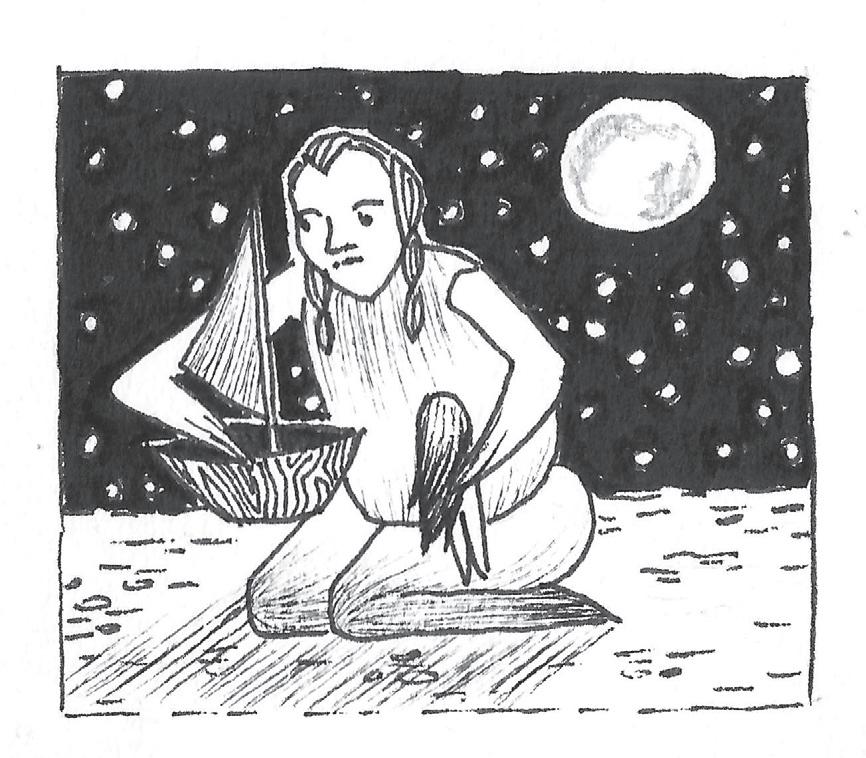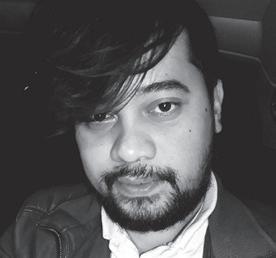
3 minute read
The Prophetic Imagination in the Age of Refugees
from Mozaik 37/2018 - (I)migrant: Perspectives of minority integration in Europe PART 2
by WSCF-Europe
Introduction
Today, the ever recurring question to the global Christian community is: how can the Church respond to the global refugee crises? Diverse public theologians and Christian organisations have provided numerous responses. On one hand, European Christian organisations have played prominent role in migrant integration. Take for example, The Churches’ Commission for Migrants in Europe (ccme) and World Councils of Churches (wcc), who never deviate from the fundamental premises that God calls to seek protection towards strangers and foreigners (Leviticus 19:33-34; Deuteronomy 19:34). However, some so called “Christian” European political parties and individuals are using Christian values and identities to proliferate fear and resentment towards immigrants. In 2015, for instance, Viktor Orban, Hungary’s prime minister, made a controversial public statement echoing an anti-immigrant and anti-Muslim sentiment. Orban wrote, “We shouldn’t forget that the people who are coming here grew up in a different religion and represent a completely culture.” He further claims, “Most are not Christian, but Muslim....That is an important question, because Europe and European have Christian roots.” Of course, his statement has drawn criticism.
Advertisement
The Task Of Prophetic Imagination
In this present challenge, however, are we really getting to the root of global refugee crisis? We appreciate the efforts of the various faith-based ngos that advocates migrants’ rights and the welfare of displaced people. Contemporary social scientists, in fact, acknowledge the valuable contributions of religious sectors as statecraft in nation-building. For example, Douglas Johnston and Cynthia Sampson argue, “To neglect religious institutions and thinking would be to render incomprehensible some of the key issues and crises in the world today.” But, are we ready to acknowledge and address structural evil or an oppressive social order?
For Walter Brueggemann, most contemporary churches suffer from a lack of prophetic imagination. For him, Christians fail to capture that global injustice is structural and not just a matter of choice by some individuals. Instead, for Brueggemann, we should carefully look at the problem and take the time to analyze prophetically or to use an act of imagination, which he defines as something that “presents lived reality in images, figures, and metaphors that defy our conventional structures of plausibility and that host an alternative scenario of reality that cuts beyond our conventional perceptual field.” In other words, ‘prophetic imagination’ aims not only to raise the question of the value of our values and social order, but also to call them into question, by raising doubts about their legitimacy and to offer an alternative scenario.
In the context of global refugee crisis, prophetic imagination suggest that we need to expose the distorted view of the eu refugee crisis. As Christian activists, we need to dismantle the illusionary notion of the “war on terror” ideology that breeds racism, white supremacy, Islamophobia, and Eurocentrism. Prophetic work exposes that the eu refugee crisis is a product of global capitalism, specifically the global military-industrial complex. For instance, The Transnational Institute (tni) and Stop Wapenhadel proves that arm sellers are now profiting from the eu refugee crisis. They said, “Most perverse of all, it shows that some of the beneficiaries of border security contracts are some of the biggest arms sellers to the Middle-East and North-Africa, fuelling the conflicts in the region that have led refugees to flee their homes. In other words, the companies contributing to the refugee crisis are now profiting from the consequences.”
Hein de Haas, professor of migration studies at the University of Amsterdam, making the same observation, said, “Arms and technology companies have reaped the main windfalls from Europe’s delusional ‘fight against illegal migration’.” This fact alone suggests that eu refugee crisis or even the global refugee crisis is highly profitable at the expense of innocent people. Thus, Slavoj Žižek, a prominent social thinker, he publicly suggested, “We cannot address the eu refugee crisis without confronting global capitalism.”
Conclusion
At the end of the day, if the contemporary Christian churches are not willing to risk their comfort and fail to address properly the structural evil, the refugee crisis is and will continue to be a global problem. Nonetheless, using prophetic imagination, it help us to act prophetically toward structural power arrangements. It helps us to choose the paths toward a world more oriented around justice and humanity. It energizes us to act as a modern prophet in the age of the status quo. It empowers us to be an active despiser of an oppressive social order. It turns us into as a catalyst for social change and not just a social worker. Prophetic imagination turned us into a critical public theologian over academic theologians; and raises social issues as part of our theological concern. It enables to explain the causes of individual act and social forces behind the global refugee crisis. Hence, if we have a correct understanding of social phenomenon, this will lead to correct responses. Although it is a risky endeavor to be a Christian prophet, we could avoid the sit-and-wait culture. As Žižek warns us, especially of the sitand-wait culture, by saying, “…Sometimes, doing nothing is the most violent thing to do.” Simply put, the only thing to do toward global problems such as refugee crisis, xenophobia, Islamophobia, hate speech, proxy war, and the globalization of military power----is to do nothing at all.
Sources
Walter Brueggemann, Disruptive Grace: Reflections on God, Scripture, and the Church, edited by Carolyn J. Sharp, (New York: Fortress Press, question 2011).
— hadje cresencio sadje
Hadje Cresencio Sadje is an associate member in the Center for Palestine Studies – soas, uk. He is a Master student at the Evangelical Theological Faculty – Leuven and has been working with various professional and faith-based organisations.







